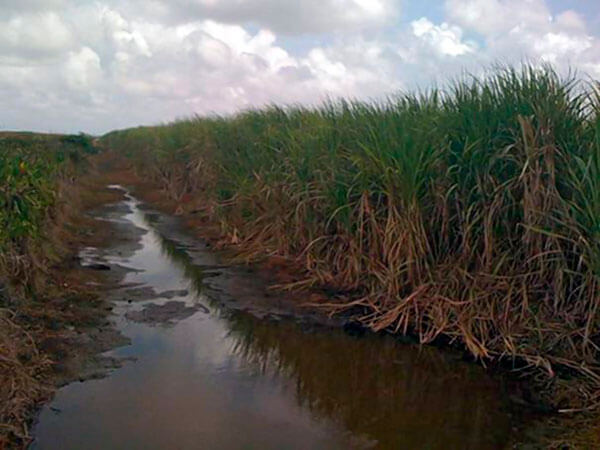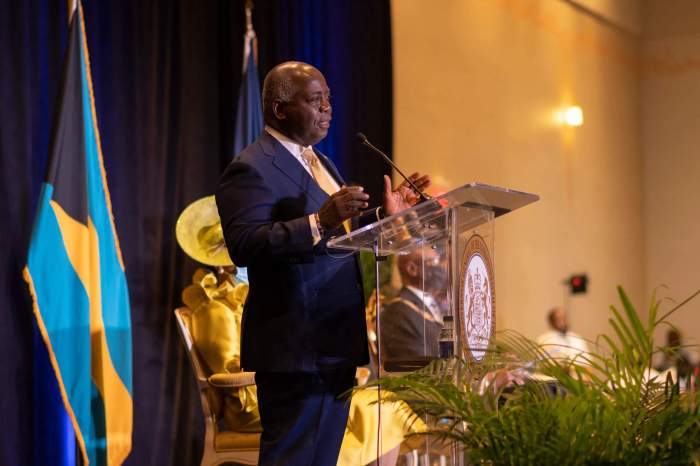Barbados
Barbados and Iceland have signed an air services agreement. It entitles the airlines designated by the countries to, among other things, fly over as well as land in the territory of the other country.
The deal further permits airlines from within the Caribbean Community (CARICOM) and from within the European Economic Area to benefit from its provisions.
Minister of Foreign Affairs and Foreign Trade, Senator Maxine McClean, and Iceland’s Minister of Foreign Affairs, Gunnar Sveinsson signed the agreement recently on behalf of their respective countries. Barbados has an extensive network of Air Services Agreements globally, which are aimed at facilitating air travel to and from Barbados and encouraging new investments in the air services sector.
In July this year, Barbados and Hong Kong signed a similar agreement aimed at developing air transport and tourism out of the Asian region.
This is the second major agreement between Iceland and Barbados- the two countries concluded a Double Taxation Agreement in 2011.
Bahamas
Bahamas Prime Minister Perry Christie has signed an exigency order to allow residents affected by Hurricane Joaquin to import items duty free “across the board to bring whatever is necessary for them to have relief.”
Christie and several members of his cabinet have completed storm assessments after multiple trips to the various southeastern Family Islands devastated by the Hurricane, a category four storm. While estimated the total damage will cost tens of millions of dollars, Christie admitted a figure has not been validated.
He said the Hurricane had caused “enormous expense” to the government and hundreds of residents.
Cayman Islands
Cayman Islands is reporting an outbreak of hand, foot and mouth disease at one school, following similar reports at several schools in Jamaica.
A total of 19 students were diagnosed at one primary school — the West End Primary School in Cayman Brac.
The Public Health Department has recommended that the entire school compound be sanitized.
Recently, several cases were reported at schools in Jamaica.
Up to last week, the number of schools affected by the outbreak had risen to 53.
Jamaica’s Health Minister Dr. Fenton Ferguson said cases have been reported in the parishes of Kingston, St. Andrew, St. Thomas, St. Catherine, Portland and St. Ann.
Hand, foot and mouth disease is a viral illness common in infants and children. Symptoms include fever and blister-like eruptions on the tongue, inside the cheek, poor appetite and sore throat.
There is no vaccine to protect against the viruses that cause the disease.
Dominica
An International Monetary Fund (IMF) mission recently visited storm-ravaged Dominica to assist the government to develop a macro-economic framework in the aftermath of Tropical Storm Erika last month, which resulted in losses and damages estimated at EC$1.298 billion.
This was announced by Prime Minister Roosevelt Skerrit who in a radio broadcast said that the IMF delegation reviewed and updated the island’s macro-economic framework.
He said the mission will assist government in preparing a framework that will take into account the significant level of investment that government must take and establish a plan that will guide fiscal operations.
The prime minister said that as far as direct relief to Dominica following the passage of the storm on Aug. 27 that killed more than 30 people, “to date government records cash receipts totaling EC$13.2 million.
Grenada
Grenada has launched a labor force survey which it said was necessary and urged the public to support the initiative so to accurately determine the socio-economic performance of the island.
The survey is being conducted in collaboration with the St. Lucia-based Organization of Eastern Caribbean States Commission, the International Labor Organization (ILO) Decent Work Team and Office for the Caribbean and the United Nations Development Program (UNDP).
A statement from the Ministry of Finance urging the general public to support the initiative, noted that the main objectives of the 2015 Labor Force Survey (LFS) are to divide the working-age population into three mutually exclusive classifications — employed, unemployed and not in the labor force — to provide descriptive and explanatory data on each of these classifications as well as to assess the level of poverty in Grenada using the multi-dimensional measurement.
But it warned that the success of the Labor Force Survey in accurately capturing persons’ employment and welfare status depended on the full cooperation of the public.
Guyana
Guyana’s state-owned sugar corporation has gone bankrupt, according to a report.
A government-appointed inquiry commission found that the company is nearly half a billion dollars in debt and faces other challenges.
“Every estate, without any exception is operating at a loss,” inquiry chairman Vibert Parvatan said in a preliminary report issued to government officials.
The commission is expected to release a final report later this month to determine what the government should do about the Guyana Sugar Corporation.
The company has struggled with an increase in production costs amid falling international sugar prices, and it has faced labor shortages, strikes and changing weather patterns.
It also has to pay back a US$200 million loan from China that was used to build a new sugar factory in Guyana’s southeast region that has struggled to function properly.
Guyana is the largest sugar-producing country in the Caribbean Community (CARICOM), but it has seen a steady drop in production.
Sugar generates the third highest amount of revenue for Guyana’s government after gold and rice.
Jamaica
Justice Minister Senator Mark Golding is pleading for “political consensus between the government and opposition” when the Senate debates the proposed adoption of the Caribbean Court of Justice (CCJ) as Jamaica’s final court.
The debate is scheduled for later this month in the Upper House.
The three companion bills seek, among other things, to entrench the CCJ as Jamaica’s final court. The bills were debated and earlier this year in the House of Representatives where the government has the two-thirds majority needed to have them passed. The opposition voted against all three bills.
Speaking at the recent 4th Biennial Conference of the Caribbean Association of Judicial Officers (CAJO) in Kingston, Golding contended that the CCJ has built an excellent jurisprudential record over the first decade of its existence, and while Jamaica admires and respects the eminent judges of the UK’s Privy Council, which currently serves as the island’s final appellate body, the judges of the CCJ are capable and are better suited to the needs of Jamaicans.
St. Lucia
President of the St. Lucia Teachers Union (SLTU), Julian Monrose, has warned that there will be serious conflict ahead for teachers over the issue of same sex-marriage.
“Just now we may be asked to teach that the family can be made up of a man, the father, a man the mother and children,” Monrose told an ecumenical service at the Piaye Secondary School to mark the recent opening of Teachers’ Week.
The SLTU president disclosed that just recently he was indicating to some teachers that the profession would have a battle over what is taught in the classroom, because what is happening in other countries will soon be here. He told the audience, which included Education Minister, Dr. Robert Lewis that teachers who believe in a particular message may soon be asked to teach what they do not believe.
He also pointed to the need for a powerful teachers union that can fight for teachers, who must be in a position to determine what goes into the school curriculum.
Trinidad
In keeping with its manifesto promise to take the fight to criminals in Trinidad and Tobago, the one-month-old, Dr. Keith Rowley People’s National Movement (PNM) government has allocated TT$3.2 billion in its 2015/2016 fiscal package for the Police Service.
In 2015 the Police Service received TT$2.2 billion under the previous Kamla Persad-Bissessar administration and has now given an extra TT$1 billion to fight the spiraling murder rate, which has reached 340 so far for this year.
September has been the bloodiest month so far with 50 murders recorded in the 30-day period.
In presenting the 2015/2016 budget last Monday, Finance Minister Colm Imbert allocated TT$10.8 billion to Ministry of National Security- T&T Regiment, Coast Guard, Prison Service, Immigration and Air Guard.
In the $63 billion (US$10 billion) budget TT$9.7 billion will go towards Education; Health $6 billion: Public Utilities $4.4 billion; Local Government $2.2 billion; Works and Infrastructure $1.9 billion; Housing $1.66 billion; Transport $1.56 billion and Agriculture $.83 billion.
The finance minister slammed the former PP government for the state of the economy which the PNM discovered to be more perilous that at first thought when they assumed office last month.
In fact, Imbert said the country almost ran out of money and was “running on fumes” at one point in time.
In his two-hour address to the House of Representatives, Imbert said, “we have laid bare the true state of T&T’s finances… we believe that in order to pull ourselves out of the difficulties which the previous administration has put this country in, through corruption and rampant squandermania, we require the collective efforts of all.”
He announced that gas prices will increase by 15 percent; diesel up by 15 percent; Value Added Tax (VAT) down to 12.5 percent; $500 pension increase; the return of Property Tax and no tax on persons earning $6,000 a month or less.
Finance Minister Colm Imbert last week unveiled a TT$63 billion (US$10 billion) budget, which contained a series of proposals aimed at providing relief for citizens and generating much needed revenue for the country’s challenging economic times.
— compiled by Azad Ali




















